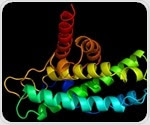| |  Researchers have developed a technique for turning type A blood into universal type O blood. The development could boost blood stocks dramatically. So far, the researches have only achieved this using petri dishes in a lab and a lot more research would be needed before the technique could benefit patients in hospitals. However, potentially, the development could be revolutionary in terms of increasing the supply of blood for life-saving transfusions. Researchers have developed a technique for turning type A blood into universal type O blood. The development could boost blood stocks dramatically. So far, the researches have only achieved this using petri dishes in a lab and a lot more research would be needed before the technique could benefit patients in hospitals. However, potentially, the development could be revolutionary in terms of increasing the supply of blood for life-saving transfusions. | |
|
| |  NHS England will be rolling out a new blood test for pregnant women to check for pre-eclampsia, a common and potentially life-threatening condition. NHS England will be rolling out a new blood test for pregnant women to check for pre-eclampsia, a common and potentially life-threatening condition. | |
|
| |  Research has found that many cases of diabetes are missed when the hemoglobin A1c blood test is used solely to diagnose the disease. Statistics published by Diabetes UK state that more than five million people in the UK will be living with diabetes by 2025, and in the last 20 years, the number of people diagnosed with diabetes has more than doubled. Research has found that many cases of diabetes are missed when the hemoglobin A1c blood test is used solely to diagnose the disease. Statistics published by Diabetes UK state that more than five million people in the UK will be living with diabetes by 2025, and in the last 20 years, the number of people diagnosed with diabetes has more than doubled. | |
|
| |  A collaboration between researchers from Brazil and the United States may open new avenues for the treatment of thrombosis, the leading cause of death among cancer patients. A collaboration between researchers from Brazil and the United States may open new avenues for the treatment of thrombosis, the leading cause of death among cancer patients. | |
|
| |  Ibrutinib and venetoclax, two FDA-approved drugs for treating chronic lymphocytic leukemia, have been shown to be effective when given together for high-risk and older patients with the disease, according to a study at The University of Texas MD Anderson Cancer Center. Ibrutinib and venetoclax, two FDA-approved drugs for treating chronic lymphocytic leukemia, have been shown to be effective when given together for high-risk and older patients with the disease, according to a study at The University of Texas MD Anderson Cancer Center. | |
|
| |  Stem cells are surrounded and protected by the stem-cell niche - the microenvironment - of the tissue in which they are found. Stem cells are surrounded and protected by the stem-cell niche - the microenvironment - of the tissue in which they are found. | |
|
| |  A method of growing blood stem cells in the laboratory has been developed by researchers at Stanford University and the University of Tokyo, in a breakthrough that could spare some people with blood and immune disorders from the side effects of intensive chemotherapy and radiotherapy. A method of growing blood stem cells in the laboratory has been developed by researchers at Stanford University and the University of Tokyo, in a breakthrough that could spare some people with blood and immune disorders from the side effects of intensive chemotherapy and radiotherapy. | |









No hay comentarios:
Publicar un comentario